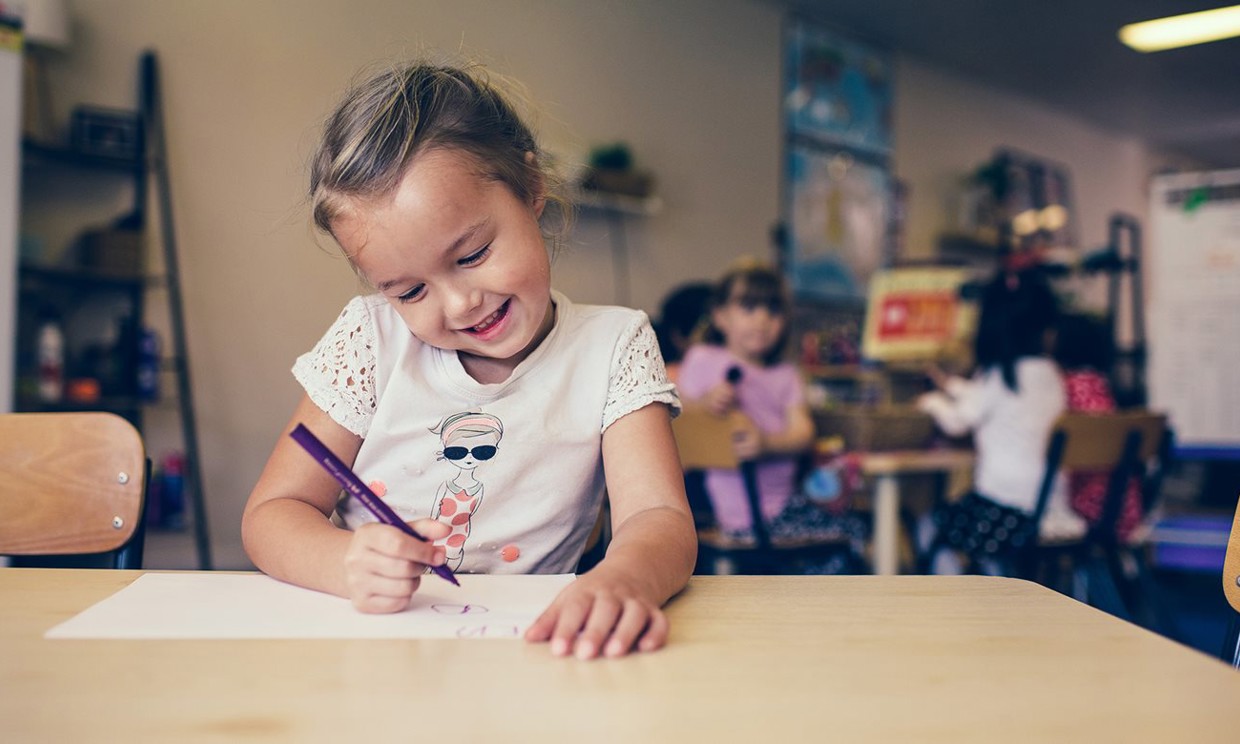Developing literacy skills in early education is critical to success in later life.
We’ve talked about the importance and benefits of children having a strong grasp on literacy here, including some of the negative outcomes associated with low literacy levels in adult life.
In a nutshell, literacy skills are vital and they are about so much more than simply being able to read and write.
The broader perspective of literacy reflects the role it plays in a person’s ability to design, speak and listen in a way that allows them to communicate effectively and make sense of the world.
Being able to read and understand information about health, fill out forms, organise information, follow instructions, understand legal obligations and interpret signs and symbols are skills that rely on having solid foundational abilities in literacy.
Tameika Smith, centre director at Goodstart Oxenford Riversdale Road understands the value of early literacy skills, so when she learned that literacy levels for children entering school in the area were poor, she knew her centre had a central role to play in improving the situation.
“We know that children who start school behind tend to stay behind, so it was obvious to us that we needed to make literacy more of a focus in our centre,” Tameika said.
“Being able to communicate effectively is the key to so many developmental areas for children, with most childhood milestones depending on strong communications skills.”
Tameika and her team decided to develop and trial a dedicated literacy room within the centre, full of resources and equipment that supports literacy development, and 12 months later the concept is in full swing and paying off.
Initially the room was designed to support children in their kindergarten year to help get them ready for school, but it’s now being used by all age groups from toddlers onwards and has proven to be especially effective in helping younger children with speech delay.
Educators in the room use the Jolly Phonics program with children, which is a multi-sensory method that teaches the sounds of letters and letter combinations, the ability to recognise and verbalise these sounds, as well as letter recognition.
The room is also full of other resources geared towards developing skills that support literacy, like:
“It’s all about making books more accessible, for both children and adults. Families are all so busy and we want to make time limitations and convenience less of an issue as we know these factors often limit access to books and reading,” Tameika said.
We’ve talked about the importance and benefits of children having a strong grasp on literacy here, including some of the negative outcomes associated with low literacy levels in adult life.
In a nutshell, literacy skills are vital and they are about so much more than simply being able to read and write.
The broader perspective of literacy reflects the role it plays in a person’s ability to design, speak and listen in a way that allows them to communicate effectively and make sense of the world.
Being able to read and understand information about health, fill out forms, organise information, follow instructions, understand legal obligations and interpret signs and symbols are skills that rely on having solid foundational abilities in literacy.
Tameika Smith, centre director at Goodstart Oxenford Riversdale Road understands the value of early literacy skills, so when she learned that literacy levels for children entering school in the area were poor, she knew her centre had a central role to play in improving the situation.
“We know that children who start school behind tend to stay behind, so it was obvious to us that we needed to make literacy more of a focus in our centre,” Tameika said.
“Being able to communicate effectively is the key to so many developmental areas for children, with most childhood milestones depending on strong communications skills.”
Tameika and her team decided to develop and trial a dedicated literacy room within the centre, full of resources and equipment that supports literacy development, and 12 months later the concept is in full swing and paying off.
Initially the room was designed to support children in their kindergarten year to help get them ready for school, but it’s now being used by all age groups from toddlers onwards and has proven to be especially effective in helping younger children with speech delay.
Educators in the room use the Jolly Phonics program with children, which is a multi-sensory method that teaches the sounds of letters and letter combinations, the ability to recognise and verbalise these sounds, as well as letter recognition.
The room is also full of other resources geared towards developing skills that support literacy, like:
- Fine motor skills: these are essential for a child to be able to write and are supported by puzzles, manipulation boards, magnet boards, chalk boards and even beanbag balls which are thrown towards targets to develop hand-eye coordination.
- Books: you can never have too many books when it comes to developing literacy! The range of books on offer are stimulating and fun, and help children relate story themes to pictures, recognise symbols and process visual information.
- Number and letter shapes: these help children to recognise letters and numbers, put them in order, practice naming them and practice sounds.
“It’s all about making books more accessible, for both children and adults. Families are all so busy and we want to make time limitations and convenience less of an issue as we know these factors often limit access to books and reading,” Tameika said.


